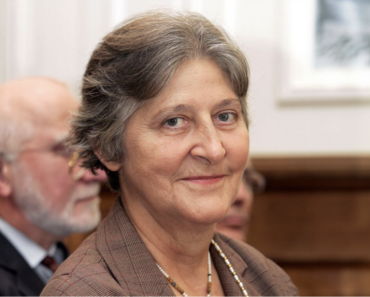
Greek President Katerina Sakellaropoulou and her German counterpart, Frank-Walter Steinmeier (not visible), help plant two olive trees on the site where a Holocaust Museum is being built in the northern port city of Thessaloniki, during an official visit by the latter to Greece, in October last year. [AMNA]
Greece has achieved a global milestone in reducing antisemitism, according to data from the Anti-Defamation League’s (ADL) Global 100 study, regarded as the most comprehensive international survey on antisemitic trends.
Findings from the ADL study, conducted in collaboration with Ipsos, reveal that over the last decade, Greece recorded the largest decrease in antisemitic attitudes globally, with a 19-point drop. The percentage fell from 69% in 2014 to 50% today, even amid the ongoing Gaza conflict, making the progress even more noteworthy, analysts in Washington say.
Dr Aykan Erdemir, ADL’s director of international affairs and lead researcher, told Kathimerini that while global antisemitism has surged by 20 points among adults, Greece has shown the most significant decline. “We are talking about a 19-point decrease since 2014,” he said.
Erdemir highlighted another key finding regarding Holocaust historical accuracy. While, globally, respondents under 35 are 21 points less likely to acknowledge the Holocaust’s historical accuracy compared to those over 50, Greece shows a reversal of this demographic trend. “Greeks under 35 are 8 points more likely to recognize the Holocaust’s historical accuracy than older generations.”
Analysts in Washington attribute Greece’s progress to coordinated efforts in government actions, legislative reforms, and educational initiatives, emphasizing that political and social will can indeed reverse these biases. They also note Greece’s alignment with Israel on energy cooperation and the trilateral Greece-Israel-Cyprus partnership, supported by the US, as critical factors in shaping this positive trend.
However, despite the significant improvement, Greece still ranks 73rd out of 103 countries surveyed, with a score well above Western Europe’s average (17%), indicating there is much work to be done to eliminate deep-rooted prejudices and misconceptions.
In contrast, the study reveals troubling trends in Turkey, which ranks among the countries with the highest antisemitic scores. Approximately 50.9 million Turkish citizens hold strong antisemitic views, with antisemitism rising by 10 points over the last decade.
Notably, 45% of Turks view Hamas positively, compared to 31% in Iran and 23% globally. Regarding Holocaust historical accuracy, only 28% of Turkish respondents believe the Holocaust occurred with historically accurate numbers of Jewish victims, 20 points below the global average.
Analysts commented that leadership plays a decisive role, as evidenced by Turkey’s president, whose rhetoric and policies have fueled rising antisemitism in contrast to Greece’s positive trajectory.
While Greece’s progress sets a positive example, the study’s overall findings remain alarming. Globally, 46% of adults – around 2.2 billion people – harbor deeply rooted antisemitic beliefs, a figure more than double that of a decade ago and the highest recorded since ADL began monitoring antisemitism trends.
The survey, conducted between July 23 and November 13, 2024, included over 58,000 adults from 103 countries, representing 94% of the global adult population. The “Global 100” index measures the percentage of respondents agreeing with six or more of 11 antisemitic stereotypes presented.
The Middle East and North Africa show the highest antisemitic attitudes, with 76% agreeing with most of the stereotypes. Asia (51%), Eastern Europe (49%), and Sub-Saharan Africa (45%) also reported high levels, while lower rates were observed in the Americas (24%), Western Europe (17%), and Oceania (20%). Still, nearly one in five adults in these regions maintains antisemitic views.
Countries with the highest antisemitism levels include the West Bank and Gaza (97%), Kuwait (97%), and Indonesia (96%). In contrast, Sweden (5%), Norway (8%), Canada (8%) and the Netherlands (8%) recorded the lowest levels.
ADL CEO Jonathan Greenblatt called the findings a “state of emergency,” especially in the global context after October 7. “We need urgent government interventions, better education, stricter social media regulations, and new security protocols to prevent hate crimes,” he stated.
Marina Rosenberg, ADL’s vice president of international affairs, added that antisemitic beliefs are dangerously normalizing worldwide. “This trend is not just a threat to Jewish communities but a warning sign for us all.”
The ADL is the world’s largest organization dedicated to combating hate, antisemitism, prejudice, and extremist violence.







